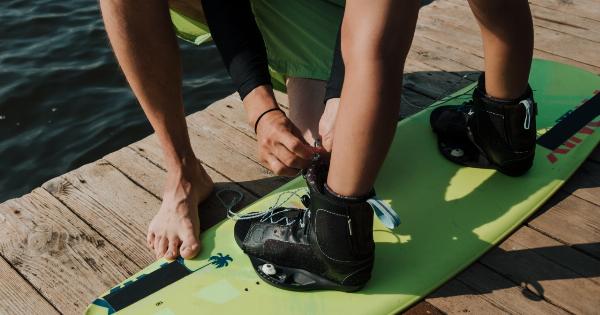Summer is a time of fun and relaxation, but it’s important to prioritize safety to ensure that you and your loved ones have a memorable and incident-free season.
Whether you’re planning a beach vacation, backyard barbecues, or outdoor activities, this ultimate guide will provide you with valuable tips and advice to keep your summer safe and enjoyable.
1. Stay Hydrated
One of the most crucial aspects of staying safe during the hot summer months is to stay hydrated. Dehydration can lead to dizziness, fatigue, and heatstroke, so ensure that you drink plenty of water throughout the day.
Avoid excessive consumption of alcohol or sugary beverages, as they can contribute to dehydration.
2. Protect Yourself from the Sun
The sun’s rays can be harsh during summer, leading to sunburns and an increased risk of skin cancer. Protect yourself by wearing sunscreen with a high SPF, reapplying it every two hours, and wearing a wide-brimmed hat and sunglasses.
Seek shade during peak sun hours (10 am to 4 pm) to minimize sun exposure.
3. Practice Water Safety
Swimming and other water activities are popular summer pastimes, but it’s essential to practice water safety to prevent accidents and injuries. If you’re going to the beach or a pool, make sure someone in your group knows CPR.
Always supervise children near water, and never swim alone or in unsafe areas. If you’re boating or participating in water sports, wear a life jacket.
4. Be Mindful of Food Safety
Summertime means outdoor picnics and barbecues, but it’s crucial to pay attention to food safety to avoid foodborne illnesses.
Keep perishable foods in a cooler with ice or ice packs, store them at the appropriate temperature, and avoid leaving them out in the sun for an extended period. Always wash your hands before handling food and ensure that meats are cooked thoroughly.
5. Prevent Insect Bites
With warmer weather comes an increase in the presence of insects, including mosquitoes and ticks. Protect yourself by wearing insect repellent, especially when spending time outdoors or in wooded areas.
Consider wearing long sleeves and pants to reduce exposed skin. After outdoor activities, thoroughly check for ticks and remove them promptly.
6. Stay Active Safely
Summer is an excellent time to engage in outdoor activities and stay active. Whether you’re biking, hiking, or playing sports, remember to do so safely.
Wear appropriate protective gear like helmets and pads, warm up before exercise, and be mindful of your surroundings to prevent accidents.
7. Travel Smart
If you’re planning a summer vacation, take steps to ensure a safe journey. Before traveling, check for any travel advisories or restrictions and research your destination thoroughly.
Prepare a well-stocked emergency kit for the trip, including essential items like a first aid kit, extra medications, and necessary documents. Avoid non-essential travel during extreme weather conditions.
8. Practice Fire Safety
Campfires and bonfires are beloved summer traditions, but it’s crucial to prioritize fire safety. Follow local fire regulations and never leave fires unattended. Keep a bucket of water or sand nearby to extinguish the fire if needed.
Teach children about fire safety and ensure they understand the dangers associated with playing with fire or fireworks.
9. Prepare for Heatwaves
Heatwaves can be dangerous, leading to heat exhaustion and heatstroke. Stay informed about heatwave alerts in your area and take necessary precautions. Stay indoors in air-conditioned environments or use fans to keep cool.
If you don’t have access to air conditioning, visit public facilities like shopping malls or libraries that provide relief from the heat.
10. Be Cautious with Fireworks
Fireworks are commonly enjoyed around the 4th of July and other summer celebrations, but they can be dangerous if not handled properly. Follow local laws regarding fireworks and only use them in designated areas.
Never light fireworks indoors or near dry grass or foliage. Keep a bucket of water nearby for dousing used fireworks, and supervise children closely during fireworks displays.





























